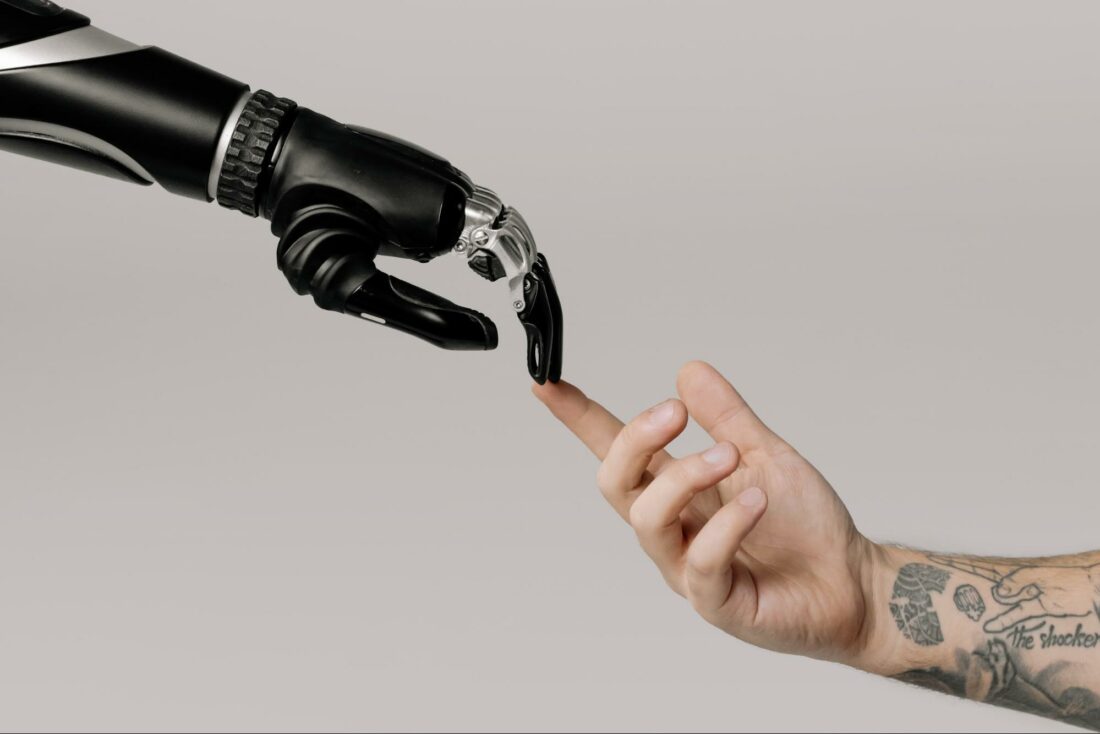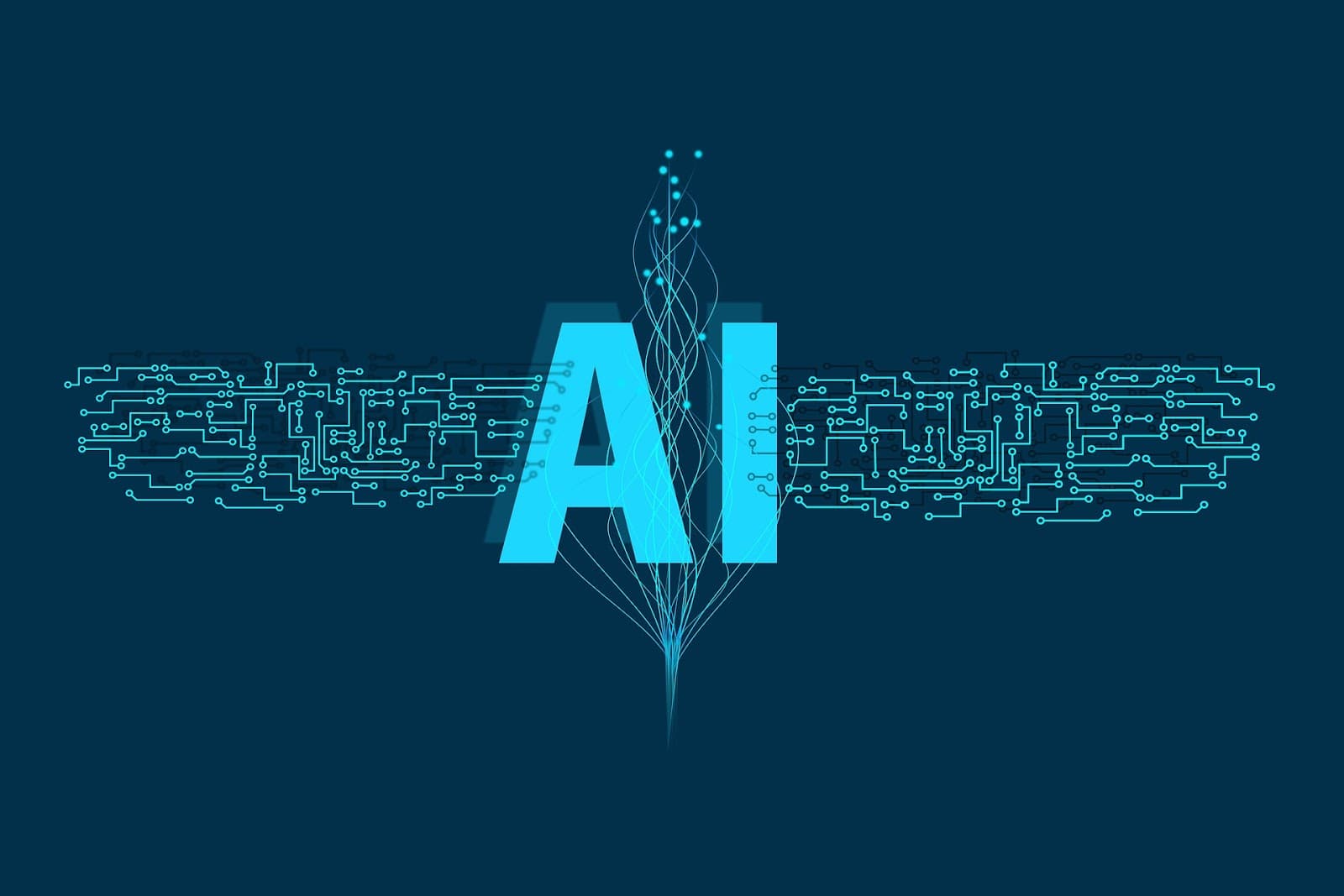
2023 Artificial Intelligence Books: Discover the Essential
Once considered fictional concepts found in works like “Frankenstein” and “Robots,” artificial intelligence has evolved into a tangible reality. With technological progress, the applications of AI continue to expand, leading many experts to view it as the cornerstone of our future society. They believe that AI will be instrumental in addressing our most urgent challenges.
Consequently, a wealth of literature has emerged, aimed at comprehending and delving into the various aspects of AI. This article will delve into a selection of outstanding books on AI, highlighting the valuable insights they offer.
A World Without Work
The rise of automation poses a significant threat to numerous job positions worldwide, with the potential to render millions unemployed.
- In this captivating book/audiobook, we embark on a retrospective journey, examining the historical impact of technological advancements on the labor market and anticipating future developments;
- Remarkably, certain experts envision a future where artificial intelligence could eliminate nearly half of all human-held occupations, even those that demand high levels of expertise and specialization. In the face of such a transformative scenario, we are compelled to contemplate: How will we adapt and cope?
This exceptional literary work provides thought-provoking insights and potential solutions for navigating our increasingly automated world.
Artificial Intelligence – A Modern Approach (4th Edition)
It stands out as a highly acclaimed and extensive publication within the field.
- Renowned AI authorities Stuart Russell and Peter Norvig have authored this exceptional book, which serves as both an undergraduate and graduate-level textbook. Its wide-ranging content encompasses a myriad of subjects, such as machine learning, logic and reasoning, natural language processing, robotics, and perception.
With its comprehensive coverage, this book is a vital resource for anyone seeking a deep understanding of contemporary AI.
Artificial Intelligence in Healthcare
Healthcare emerges as a field with immense potential for the application of artificial intelligence. Dr. Parag Suresh Mahajan, MD, presents a compelling book that delves into the myriad advantages AI can bestow upon healthcare systems. With a focus on machine learning, the book delves into the current utilization of AI and explores the potential ramifications of its integration into healthcare. These include the prospect of algorithms autonomously determining treatment plans and independently diagnosing patients. From the discovery of novel drugs to the automation of radiology, AI is on the brink of transforming the healthcare landscape, and this enlightening book serves as a guide to understanding this profound revolution.
Machine Learning for Dummies
Among the notable books on AI, “Machine Learning for Dummies” stands out as a crucial resource. Authored by John Paul Mueller and Luca Massaron, this book serves as a comprehensive introduction to the realm of machine learning.
- It offers a user-friendly exploration of the fundamental concepts and tools employed in this swiftly evolving domain of study;
- Moreover, the book incorporates hands-on examples that facilitate practical understanding, including the detection of credit card fraud and the optimization of web search outcomes;
- With its accessible approach, “Machine Learning for Dummies” equips readers with the knowledge and skills necessary to embark on their machine learning journey.

Genius Makers
Among the exceptional books on AI, “Genius Makers” by Cade Metz stands out for its unique perspective.
- Rather than solely delving into the technical aspects of artificial intelligence, this book takes a captivating approach by exploring the individuals behind AI;
- It sheds light on the pioneers and innovators who have played a pivotal role in shaping the field, examining their profound influence on our culture and economy;
- Moreover, “Genius Makers” delves into the varied motivations for funding AI research, revealing the stark differences that exist. While national interest may serve as one driving force, shareholder value, and scientific curiosity also play significant roles;
- It is important to note that conflicts between these interests can arise, particularly when research is conducted within the private sector.
By delving into these multifaceted dynamics, the book provides a comprehensive understanding of the complex world of AI and the individuals who have propelled it forward.
Artificial Intelligence and Machine Learning
Offering valuable insights into the realm of data-driven technologies, “Artificial Intelligence and Machine Learning: A No-Nonsense Guide to Data-Driven Technologies” emerges as a must-read resource. Distinguishing itself from other works, this book adopts a business-oriented approach, providing a clear understanding of how AI is leveraged in real-world scenarios. It seamlessly combines theoretical concepts with practical techniques, equipping readers with the necessary knowledge to embark on their machine-learning journey.
Author Steven Finlay takes readers on a journey to explore the potential applications of AI in reducing costs and enhancing customer engagement. By delving into the intricacies of AI tools, this book empowers individuals to unlock new avenues for business growth and success. With its emphasis on practicality and real-world implementation, it is an indispensable resource for those seeking to harness the power of AI in their respective fields.
What Computers Still Can’t Do: A Critique of Artificial Reason
Among the pioneering works that critically assessed the potential and boundaries of artificial intelligence, “What Computers Still Can’t Do” by Hubert Dreyfus occupies a significant position. Published in 1972, this book stands out for its forward-thinking approach, predating the development of many concepts that are now commonly associated with AI. While some of Dreyfus’ arguments may appear outdated in light of modern advancements, the underlying reasoning and insights he presented continue to hold relevance and significance.

By delving into the limitations of computers and their ability to replicate human intelligence, Dreyfus laid the foundation for ongoing debates surrounding AI. His exploration of the complexities involved in human understanding and expertise remains thought-provoking, inviting readers to reconsider the nature of intelligence itself. Despite the passage of time, “What Computers Still Can’t Do” continues to stimulate critical thinking and serves as a valuable resource for comprehending the evolving landscape of artificial intelligence.
Make Your Neural Network
If you’ve ever desired to construct your neural network but felt uncertain about where to begin, “Make Your Neural Network” by Tariq Rashid provides an ideal starting point.
- This comprehensive guide takes readers through a systematic journey, offering step-by-step instructions for designing and implementing AI algorithms;
- It serves as an excellent resource for beginners seeking to grasp the fundamentals of machine learning without becoming overwhelmed by intricate technicalities;
- By following this accessible book, readers can acquire a solid understanding of neural networks and gain hands-on experience in building their own;
- The author’s approach ensures that even those without extensive technical backgrounds can successfully navigate the process.
With its emphasis on practicality and simplicity, “Make Your Neural Network” equips aspiring learners with the tools they need to embark on their machine-learning journey confidently.
The Alignment Problem: Machine Learning and Human Values
Delving deep into the ethical complexities engendered by artificial intelligence, “The Alignment Problem: Machine Learning and Human Values” presents a comprehensive examination of the subject. This book goes beyond theoretical discourse, incorporating historical perspectives and real-world illustrations to illuminate the profound impact of AI on society. It skillfully intertwines philosophical arguments with practical insights, drawing upon the ideas of influential thinkers in the field.
By surveying a broad spectrum of perspectives, the author constructs a pragmatic framework that guides the ethical deployment of artificial intelligence. The book serves as a thought-provoking resource, inviting readers to contemplate the intricate relationship between machine learning and human values. Through its multifaceted approach, the book equips individuals with the necessary tools to navigate the ethical challenges presented by AI, facilitating responsible and conscientious decision-making in this transformative era.
Advances in Financial Machine Learning
In the realm of financial research, the significance of big data cannot be understated, as it paves the way for transformative advancements through machine learning. Catering to both data scientists and financial analysts, “Advances in Financial Machine Learning” stands out as an industry-specific book. Its contents encompass a wide range of crucial topics, including supercomputing and deep learning, among others.
This book goes beyond theoretical discussions by providing practical guidance, incorporating code, mathematical explanations, and real-world examples. By immersing readers in these resources, it empowers them to harness the capabilities of machine learning and apply them effectively in making informed financial decisions.
Machine Learning: The New AI
It is a comprehensive guide to pattern recognition, predictive analytics, and other cutting-edge machine learning methods. This book is suggested for anyone interested in learning how machine learning functions and how we may apply it to address issues in a variety of sectors.

The Society of Mind
While numerous books explore artificial intelligence, certain titles adopt a philosophical lens to delve deeper into the subject matter. “The Society of Mind” by Marvin Minsky, an esteemed figure in AI theory with a rich history of research funding from NASA and MIT, stands as a prime example. This thought-provoking book delves into the intricacies of the human mind, presenting insights that facilitate greater comprehension of its inner workings.
Minsky’s work shines a light on the mutual interaction between humans and machines, encouraging individuals to explore the remarkable capabilities of their minds. Although the book may appear dense for those new to AI, it offers invaluable perspectives on the coexistence and collaboration of human cognition and artificial intelligence. By delving into the philosophical aspects of AI, “The Society of Mind” opens up new avenues for understanding and ignites the imagination regarding the possibilities that arise when human intelligence interfaces with machine intelligence.
Life 3.0
One of the better books about artificial intelligence available now is “Life 3.0” by Max Tegmark, which takes a more philosophical approach to the topic. us looks at where we are today, how we got here, and all the opportunities that mankind has in front of us. Some readers might find it a little too scientific, but those who appreciate delving thoroughly into the topic of AI will find it to be quite thought-provoking.
You’ll discover ramifications for AI in war, crime, and ethics that you may not have previously considered. You should read Life 3.0 because it will make you reevaluate your ideas on AI and motivate you to do so.
Fundamentals of Machine Learning for Predictive Data Analytics: Algorithms, Worked Examples, and Case Studies
This indispensable manual on machine learning is the result of a collaboration among writers. This book is excellent for beginners with some programming and statistics knowledge even though it is undoubtedly a more difficult text. The inclusion of several examples and case studies facilitates comprehension of how the strategies operate in practical settings.
Applied Artificial Intelligence: A Handbook for Business Leaders
With “Applied Artificial Intelligence,” Mariya Yao, Adelyn Zhou, and Marlene Jia turn their attention to business executives. This book is well worth reading because it was selected as the Top Technology Book of the Year by CES 2018.
We are aware that applying AI can be challenging, thus this book is made to assist you in doing so successfully. It covers how to estimate risk and ROI, how to boost cooperation and break down silos, as well as how to track your AI implementations.
The Hundred-Page Machine Learning Book
An accessible introduction to machine learning is one of the greatest publications on the subject. Although it is only about 100 pages long, it covers all the crucial subjects you need to be aware of. There is also a book wiki that goes along with it that is accessible online.
Human Compatible – Artificial Intelligence and the Problem of Control
In a world where superhuman intelligent machines loom, the question arises: How can we safeguard ourselves? “Human Compatible” by Stuart Russell tackles this crucial concern head-on, exploring strategies for ensuring that AI aligns with human interests rather than posing a threat. The book delves into the potential sources of conflict between humans and machines while presenting plausible solutions to mitigate such risks.
While the notion may evoke images from Hollywood films, the matter at hand is undeniably significant and warrants attention. For those who prefer auditory experiences, an audiobook version of “Human Compatible” is available for download, catering to various learning preferences. By delving into the complex dynamics between humans and AI, this book serves as an essential resource for addressing the implications of superhuman intelligence, striving to shape a future where AI becomes a beneficial and compatible force for humanity.
Artificial Intelligence for Humans
The foundations of artificial intelligence are covered in the first volume of this trilogy. Dimensionality, distance metrics, clustering, error analysis, hill climbing, Nelder Mead, and linear regression will all be covered. You can check your comprehension of the principles and apply them through the book’s exercises. Before beginning this book, keep in mind that you should be familiar with basic college mathematics or computer programming.
Rebooting AI
Driven by a shared objective, Gary Marcus and Ernest Davis, esteemed authorities in the field, strive to establish a foundation of trust in artificial intelligence. Their perspective on the challenges posed by AI takes an optimistic stance, asserting that humans possess the capacity to construct machines of utmost reliability. Rather than perceiving intelligent machines as a looming threat, they advocate for a proactive mindset, urging humanity to contemplate the responsible utilization of AI.
Marcus and Davis emphasize that we are currently distant from a scenario where intelligent machines jeopardize our well-being. However, they urge us to reflect upon the ethical and responsible integration of AI into our lives. Their work invites society to envision a future where AI is harnessed for the betterment of humanity, fostering a sense of trust and reliability in the systems we create. By embracing this perspective, Marcus and Davis empower individuals to navigate the evolving landscape of AI with a sense of responsibility and foresight.
Artificial Intelligence Engines: A Tutorial Introduction to the Mathematics of Deep Learning
Those interested in learning more about artificial intelligence engines can use this book, which includes tutorials, a glossary, and a ton of code samples. It covers deep learning’s mathematics, which includes components like neural networks. Through online open-source programming tasks, you’ll get practical experience and learn how to use these ideas. This book is great for both beginners and intermediates because it includes PowerPoint slides that can be downloaded as well.
Machine Learning for Absolute Beginners
This book is a great place to start if you’re unfamiliar with machine learning. It shows how to utilize data science and Python to address real-world problems and is geared toward those without specialized training in machine learning or data science. It may not be as well-known as some of the other books on this list, but it is still a fantastic resource for beginners.
Machine Learning for Hackers
The book “Machine Learning for Hackers” is not just for criminals; everyone can benefit from it. This book is a how-to manual for applying machine learning strategies in your job, written by Drew Conway and John Myles White. A distinct algorithm is the subject of each chapter, which also explains how to apply it to practical situations. To detect spam, for instance, and to forecast user behavior, you’ll learn how to utilize a Bayesian classifier and logistic regression, respectively.
Conclusion
The vast array of exemplary books on artificial intelligence showcased through these examples highlights the wealth of knowledge available in this field. Depending on your specific interests and objectives, you can immerse yourself in the depths of AI research and exploration.
Whether you’re embarking on your AI journey or seeking to delve deeper into the subject, you’ll find a book that perfectly aligns with your needs. There exists a diverse selection of titles catering to various levels of expertise and areas of focus. Feel free to share your favorite book on artificial intelligence and enlighten us about any other essential reads we might have overlooked.
FAQ:
Analysts anticipate that the AI sector will keep growing across a range of industries. It is projected that organizations, industries, and everyday life would progressively use AI technologies. Automation of jobs across sectors is anticipated to be significantly aided by AI, increasing productivity and efficiency. This can entail automating repetitive or routine chores so that people can concentrate on more difficult and creative jobs.
Analysts foresee developments in comprehension and natural language processing (NLP). This might result in chatbots, voice assistants, and language translation services becoming more advanced.
The widespread adoption and integration of AI are poised to shape numerous industries and sectors in the coming years.
1. Businesses across diverse domains are set to harness AI technologies to enhance operational efficiency, productivity, and decision-making processes.
2. The expansion of AI-driven automation is expected, relieving human workers of repetitive and mundane tasks. This transformation will reverberate across industries such as manufacturing, logistics, and customer service, among others.
3. Furthermore, the deployment of AI on edge devices like smartphones, IoT devices, and autonomous vehicles is projected to surge. This trend facilitates faster processing, real-time decision-making, and reduced dependence on cloud infrastructure.
4. AI’s potential to extract valuable insights from vast data sets is anticipated to play a pivotal role.
5. By improving data processing and analysis capabilities, businesses can leverage AI to make data-driven decisions, gaining a competitive edge.
6. The healthcare sector, in particular, is poised for significant advancements with AI applications, spanning improved diagnostics, personalized medicine, drug discovery, health monitoring, and streamlined healthcare operations.
7. As AI continues its ascent, ethical considerations surrounding its utilization become increasingly paramount. Ongoing discussions and evolving regulations will focus on AI ethics, transparency, bias mitigation, and ensuring accountability in AI systems and their decision-making processes.
This reflects the growing awareness of the need to address ethical implications and ensure responsible AI deployment for the benefit of society at large.
A sophisticated language model created by OpenAI is called GPT-3. It is one of the largest language models currently available and makes use of deep learning techniques. It also includes 175 billion parameters. Impressive abilities in text production, natural language processing, and other language-related tasks have been shown with GPT-3.





